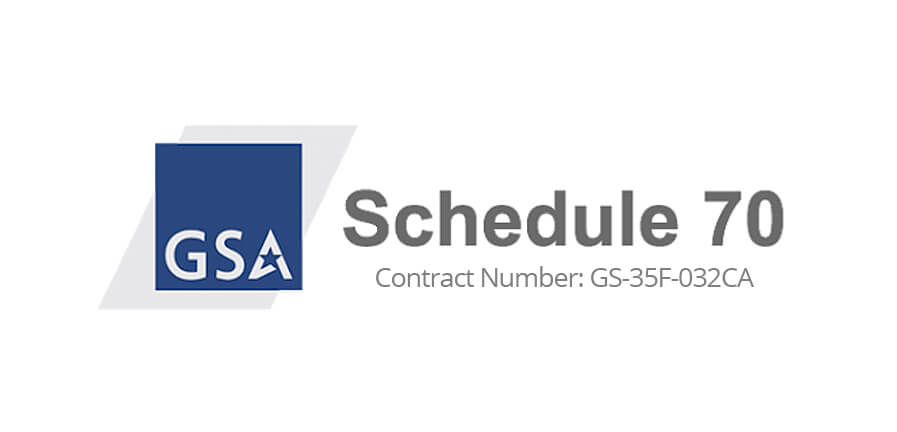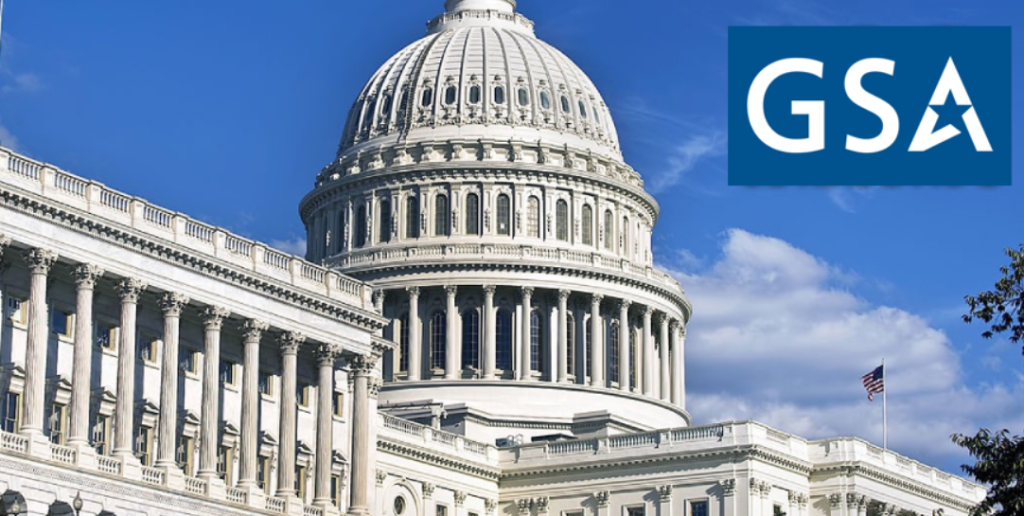First of all, a company must have and MAS GSA Schedule has to be in place, in order to do business with the government, within any segment.
The Multi Award Schedule (MAS) GSA Schedule, officially known as the General Services Administration Schedule, is a contracting program that allows businesses to sell goods and services to the federal government. It’s a contract vehicle that simplifies the procurement process for government agencies and helps businesses establish a relationship with the government as a potential supplier.
The GSA Schedule is essentially a pre-negotiated contract that outlines the terms and conditions under which the government can purchase a wide variety of products and services from approved vendors at pre-negotiated prices. This eliminates the need for individual agencies to negotiate contracts with each vendor separately, streamlining the procurement process and saving time and resources.
To be eligible for a GSA Schedule contract, businesses typically need to meet certain criteria, such as having a track record of providing quality products or services, financial stability, and the ability to meet the government’s requirements. The application process can be competitive and involves submitting detailed information about your company and the products or services you wish to offer.
What are the benefits of using the GSA IT Schedule 70?
Having a GSA Schedule contract can indeed be beneficial for businesses looking to do business with the government, as it provides a streamlined way to access a potentially large customer base. However, it’s important to note that the process can be complex and time-consuming, and businesses should carefully consider whether obtaining a GSA Schedule contract aligns with their goals and capabilities.
GSA Schedule 70, also known as the Information Technology (IT) Schedule 70, is a contracting vehicle established by the General Services Administration (GSA) in the United States. It is a long-term government-wide contract that allows federal, state, local, and tribal government agencies to purchase a wide range of IT products, software, and services from pre-approved vendors.
GSA Schedule 70 simplifies the procurement process for government agencies by providing them with a streamlined way to acquire IT solutions and services. Vendors who have been awarded a GSA Schedule 70 contract have gone through a rigorous evaluation and negotiation process with the GSA to ensure that their offerings meet the government’s requirements and are offered at fair and reasonable prices.
The GSA Schedule 70 solicitation is usually published on the GSA’s official website or the Federal Business Opportunities (FedBizOpps) website. It’s essential for potential contractors to carefully review the solicitation to ensure they understand the requirements and expectations of the GSA for obtaining and maintaining a Schedule 70 contract.
Keep in mind that solicitation documents can change over time, so it’s important to refer to the official GSA website or the appropriate channels for the most current and accurate information regarding GSA Schedule 70 solicitation details.
The application process can be quite detailed and may require careful planning and preparation. Here’s an overview of the steps you would typically need to take:
- Determine Eligibility: Ensure that your business and the products or services you offer align with the scope of IT Schedule 70 requirements. GSA Schedule 70 covers a wide range of IT products, software, and services.
- Market Research: Conduct research to understand your competition and the government’s requirements. This will help you tailor your offerings and pricing to be competitive and appealing to government buyers.
- Register in SAM: If you haven’t already, you need to register your business in the System for Award Management (SAM) database. This is a requirement for all businesses seeking to do business with the U.S. government.
- Prepare Required Documents: The GSA requires a number of documents and several types of detailed information as part of your application. This typically includes financial statements, past performance references, pricing information, and more. Make sure you have all the necessary documentation ready.
- Proposal Submission: Submit a proposal through the GSA’s eOffer/eMod system. This online platform is used to submit your proposal and negotiate the terms and conditions of your future contract. Your proposal will need to cover numerous aspects such as your company’s capabilities, pricing, terms and conditions, and more. Ensure that your proposal is well-organized, free of errors, and adheres to the formatting and submission guidelines specified in the solicitation.
- Negotiation: After you submit your proposal, the GSA will review it and may initiate negotiations to ensure that your offerings and terms are in line with their requirements. Negotiations may involve pricing adjustments, terms clarification, and other considerations. Approach negotiations with a willingness to find common ground.
- Contract Award: The GSA approval process can take time and might involve revisions and follow-up. Be patient and persistent throughout the process. Once negotiations are successfully completed, you’ll receive a GSA Schedule contract award, with a unique contract number. This contract will outline the terms and conditions under which government agencies can purchase your products or services.
- Catalog and Reporting: After contract award, you’ll need to create and maintain a GSA Advantage catalog. This online marketplace is where government buyers can browse and purchase products and services from GSA Schedule contractors. Additionally, you’ll be required to provide sales and transaction data regularly.
- Compliance and Reporting: Maintaining compliance with the terms of your GSA Schedule contract is important. This includes adhering to the contract’s terms and conditions, providing accurate and timely reporting, and addressing any potential issues promptly.
It’s important to note that the process of obtaining a GSA Schedule contract can be complex and time-consuming. Many businesses seek the assistance of consultants or experts who specialize in GSA contracting to navigate the process more effectively. Additionally, the requirements and processes may change over time, so it’s essential to refer to the official GSA website and resources for the most up-to-date information and guidance.
How can I find products and services available on the GSA IT Schedule 70?
The GSA Schedule 70 solicitations cover various categories of IT products and services, including:
- Hardware: Computers, servers, networking equipment, peripherals, and related products.
- Software: Commercial off-the-shelf (COTS) software, software licenses, software maintenance, and related services.
- IT Services: Consulting, training, software development, cloud services, cybersecurity, data conversion, and more.
- Maintenance and Support: Ongoing maintenance, updates, and technical support for IT products and services.
- Telecommunications: Telecommunication services, equipment, and related products.
- Cybersecurity: Products and services focused on securing IT systems and data.
To get an idea of the current services being offered, the various technologies and solutions that are being solicited by the government, and access the most up-to-date list of GSA Schedule 70 contract holders, you should visit the official GSA website or use the GSA’s eLibrary search tool. Here’s how you can find the list:
- Visit the GSA eLibrary:
Go to the GSA eLibrary website at https://www.gsaelibrary.gsa.gov/.
- Search for Schedule 70 Contracts:
Use the search feature on the website to find the GSA Schedule 70 contracts. You can search by specific keywords, vendor names, or other criteria related to IT products and services.
- Browse the List:
The search results will provide you with a list of contractors who have GSA Schedule 70 contracts. You can browse through the list and access individual contractor profiles for more information.
- Verify the Information:
As you explore the list, make sure to verify the details of the contractors, including their offerings, contact information, and contract specifics, as this information may change.
Keep in mind that GSA Schedule 70 is a popular contracting vehicle, so the list of contractors may be extensive. If you’re interested in specific types of IT products or services, you might want to refine your search to find contractors that align with your requirements.
Remember that the GSA eLibrary is the official source for GSA Schedule contract information, and it’s the best place to obtain accurate and up-to-date information about GSA Schedule 70 contractors.
Conclusion
By offering a pre-negotiated contract with approved terms and pricing, GSA Schedule 70 simplifies and expedites the procurement process for government agencies, allowing them to acquire IT solutions efficiently while adhering to federal procurement regulations.
For vendors, the general purpose of obtaining a GSA Schedule 70 contract is to open up significant business opportunities with government agencies. However, the process of obtaining and maintaining a GSA Schedule contract can be complex and competitive, requiring careful preparation, documentation, and adherence to government standards and regulations.
Please do not hesitate to contact Price Reporter at www.pricereporter.com for a detailed consultation on how to go about obtaining your GSA IT schedule 70. Price Reporter are a team of knowledgeable specialists in the GSA marketplace in general and IT industry, in particular. Partnering up with a seasoned consultant will eventually safe both financial and human resources and put you on the track to success !









I’m glad I stumbled upon this article. It’s a concise yet comprehensive resource that explains the eligibility for the GSA IT Schedule 70. Knowing that various government entities can tap into this schedule broadens the horizons for businesses looking to provide IT solutions to the public sector.
As a tech entrepreneur, I’ve been considering pursuing contracts through the GSA IT Schedule 70. This article has been immensely helpful in understanding who can utilize this program. It’s reassuring to know that it’s not limited to just federal agencies.
I was curious about the eligibility criteria for the GSA IT Schedule 70, and this article provided all the answers I needed. The fact that a wide array of government entities can access it opens up exciting possibilities for businesses in the tech sector.
This article is a must-read for anyone interested in government IT contracts. The information on who can use the GSA IT Schedule 70 is crucial, and the article presents it in a clear and concise manner. It’s an excellent starting point for businesses exploring federal IT opportunities.
I appreciate the breakdown of eligibility for the GSA IT Schedule 70 in this article. It’s helpful to know that not only federal agencies but also state and local governments, tribal entities, and educational institutions can leverage this valuable resource.
Understanding who is eligible to use the GSA IT Schedule 70 is essential for businesses like ours. This article does a great job of clarifying the eligibility criteria, and it’s good to know that a wide range of government agencies can benefit from this program.